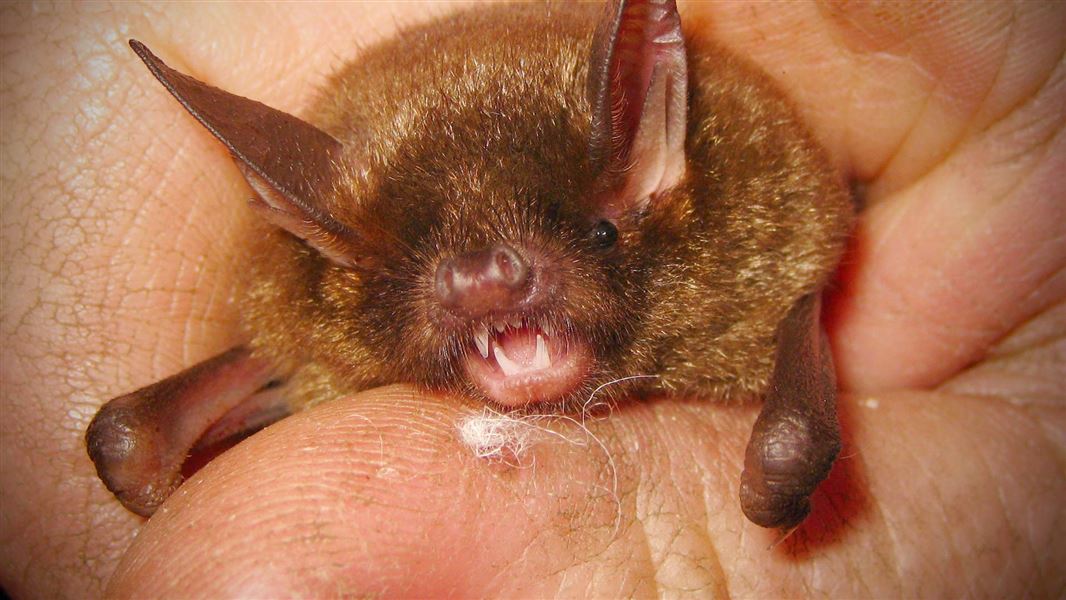Archived content: This media release was accurate on the date of publication.
Date: 08 September 2023
An elusive colony of Southern lesser short-tailed bats appears to be holding steady with the population estimated between 300 and 400 individuals.
The Department of Conservation (DOC) has recently completed the annual monitoring of the Murchison Mountains, Fiordland population, which was first discovered in 2018 using acoustic recorders.
DOC Ranger Warren Simpson says it is great to get more information on the status of this species.
“There are only three populations of southern lesser short-tailed bats we know of across all New Zealand,” he says.
“Bats are extremely vulnerable to predation by introduced predators like stoats, rats, feral cats and possums. They are only found in areas where there is intensive, regular predator control like the Eglinton Valley, or predator free offshore islands.”
In the Murchison Mountains there is large-scale control for stoats, but not rats, so the bat population is still quite vulnerable, Warren says.
An annual monitoring programme was established in 2022 thanks to a partnership with Te Anau-based Contract Wild Animal Control New Zealand Limited (CWAC NZL).
“This DOC/CWAC NZL partnership allows us to increase our understanding of the bat population density and distribution, providing tangible benefits to the conservation of New Zealand’s bat species,” Warren says.
“New Zealand’s short-tailed bat/pekapeka is unusual among bat species due to not only hunting on the wing, but also foraging on the ground using smell and their keen sense of hearing to locate prey as they scurry about the forest floor on all four limbs.
”They forage like little pigs rooting around in the leaf litter.
“This unusual foraging strategy was only viable to evolve in bats due to New Zealand’s lack of mammalian predators prior to their introduction by humans.
“The more we know about them, the better we’ll be able to protect them.”
Contact
For media enquiries contact:
Email: media@doc.govt.nz
